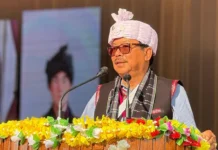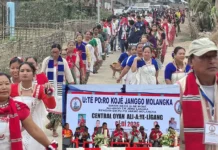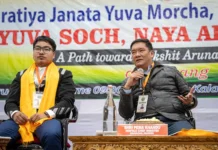ITANAGAR, Sep 21: The All Arunachal Pradesh Students’ Union (AAPSU), which has been pursuing the issue of offspring of non-APST fathers and APST mothers enjoying APST status and other benefits, has demanded that the state government immediately constitute an ’empowered study group’ to look into the issue.
In a memorandum to the chief minister, the AAPSU on Friday demanded introduction of a stringent legislation in the state assembly in the coming assembly session on the issue, “or an ordinance by way of a cabinet sitting immediately.”
It also demanded that marriage registration should be made compulsory for all APST women marrying non-locals.
The AAPSU said there are numerous cases of offspring of non-APST fathers and APST mothers availing APST and other benefits meant exclusively for the indigenous communities of Arunachal Pradesh.
The union informed the chief minister that non-locals, after marrying APST women, purchase movable and immovable assets in their wives’ names.
“These wives surprisingly never change and adopt their husbands’ surname. In some cases, their sons/daughters again tie their nuptial knots with the locals. The entire properties are transferred to their APST daughter-in-law/son-in-law. This vicious circle has been going on in numerous parts of the state,” the AAPSU said.
“Ours is a protected state with almost cent percent tribal population. One is entitled to APST status by birth, which cannot be diluted due to marriage with a non-APST or by way of conversion of religion. However, that does not entail that son/daughter born to an APST mother and a non-APST shall be eligible for APST and other rights at par with the indigenous tribes of the state,” the AAPSU said.
“There is an urgent need for a concrete mechanism to tackle this growing menace, which is slowly destabilizing the socio-cultural fabric of Arunachal Pradesh,” it said.
The AAPSU said that the empowered study group would also study the quantum of punishment to be fixed for those issuing APST certificates to such individuals “and other important issues related to the subject matter.”




